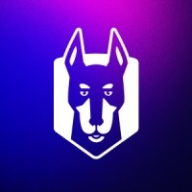

In the competitive landscape of developer tools, GitHub and Snyk stand out in their respective domains. GitHub appears to have the advantage in community support and collaboration features, while Snyk leads in security and vulnerability management.
Features: GitHub focuses on enhancing community collaboration with valuable tools like Git Hooks, SSH keys, and branch management, which are vital for teamwork and code integrity. Security integrations further strengthen its offering. Snyk distinguishes itself through its simplicity and rich CI system integrations. A robust vulnerability database and comprehensive security features address critical developer needs, making risk management straightforward and effective.
Room for Improvement: GitHub can enhance its project management capabilities, better support for larger file handling, and improve integrations with automation tools. Upgrades in security features and a simplified UI are also desirable. Snyk could improve its runtime analysis setup, expand language support, and enhance integration capabilities. Users frequently request better filtering, reporting, and IDE integration.
Ease of Deployment and Customer Service: GitHub's flexibility across various cloud environments is noteworthy, although it primarily caters to public cloud settings. Its community support is strong, yet technical support effectiveness varies. Snyk offers broad deployment options, including private and hybrid clouds, and garners appreciation for its technical support, suggesting user-friendly experiences despite underutilization.
Pricing and ROI: GitHub offers free use for open-source projects, with competitive pricing for private use emphasizing cost-effectiveness. Its ROI is highlighted by many users. In contrast, Snyk's pricing is considered high but is justified by its extensive security benefits and features. GitHub's pricing is user license-based compared to Snyk's contributor-based model, each delivering value tailored to their offerings.
I can see that Snyk saves the costs of hiring security developers for vulnerability scanning and security checks, as that responsibility is now managed by Snyk.
The technical support from GitHub is generally good, and they communicate effectively.
Some forums help you get answers faster since you just type in your concern and see resolutions from other engineers.
I have not used GitHub's technical support extensively because there are many resources and a robust knowledge base available due to the large user community.
Our long-standing association has ensured smooth communication, resulting in favorable support experiences and satisfactory issue resolution.
Their response time aligns with their SLA commitments.
We could understand the implementation of the product and other features without the need for human interaction.
We have never had a problem with scalability, so I would rate it at least eight to nine.
GitHub is more scalable than on-prem solutions, allowing for cloud-based scaling which is beneficial for processing large workloads efficiently.
Snyk allows for scaling across large organizations, accommodating tens of thousands of applications and over 60,000 repositories.
Snyk is very scalable and can handle my organization's growth and changing needs.
If a skilled developer uses it, it is ten out of ten for stability.
It provides a reliable environment for code management.
GitHub is mostly stable, but there can be occasional hiccups.
When working with the CI/CD pipeline and somebody is writing the workflow file, it would be best to include the AI feature so if they write incorrect code, it will notify me about it in the same dashboard, eliminating the need to use third-party tools to review the file.
I am providing this feedback for Copilot because it seems more widespread and more companies allow it rather than Amp, and it would be beneficial if they catch up with Amp on this capability.
Security could make GitHub better. OWASP Top Ten security advisors could be integrated on GitHub, and it could provide checks and advice.
It lacks the ability to select branches on its Web UI, forcing users to rely on CLI or CI/CD for that functionality.
The inclusion of AI to remove false positives would be beneficial.
As we are moving toward GenAI, we expect Snyk to leverage AI features to improve code scanning findings.
Normally, GitHub is not expensive, but it would be welcome if it reduces costs for developing countries.
The pricing of GitHub is reasonable, with the cost being around seven dollars per user per month for private repositories.
The pricing of GitHub depends on the choice of solutions, such as building one's own GitHub Runners to save money or using GitHub's Runners with extra costs.
Snyk is recognized as the cheapest option we have evaluated.
After negotiations, we received a special package with a good price point.
Snyk is less expensive.
The pull request facility for code review.
GitHub Actions allow for creating multiple jobs that run in different stages such as build, test, and deploy, which enable better visibility and control over the deployment pipeline.
For branching, it works well, especially in an agile environment.
Our integration of Snyk into GitHub allows us to automatically scan codebases and identify issues, which has improved efficiency.
Snyk helps detect vulnerabilities before code moves to production, allowing for integration with DevOps and providing a shift-left advantage by identifying and fixing bugs before deployment.
Snyk has positively impacted my organization by improving the security posture across all software repositories, resulting in fewer critical vulnerabilities, more confidence in overall product security, and faster security compliance for project clients.
| Product | Market Share (%) |
|---|---|
| GitHub | 1.1% |
| Snyk | 5.7% |
| Other | 93.2% |


| Company Size | Count |
|---|---|
| Small Business | 42 |
| Midsize Enterprise | 13 |
| Large Enterprise | 49 |
| Company Size | Count |
|---|---|
| Small Business | 21 |
| Midsize Enterprise | 9 |
| Large Enterprise | 21 |
GitHub is a web-based Git repository hosting service. It offers all of the distributed revision control and source code management (SCM) functionality of Git as well as adding its own features. Unlike Git, which is strictly a command-line tool, GitHub provides a Web-based graphical interface and desktop as well as mobile integration. It also provides access control and several collaboration features such as bug tracking, feature requests, task management, and wikis for every project.
Snyk excels in integrating security within the development lifecycle, providing teams with an AI Trust Platform that combines speed with security efficiency, ensuring robust AI application development.
Snyk empowers developers with AI-ready engines offering broad coverage, accuracy, and speed essential for modern development. With AI-powered visibility and security, Snyk allows proactive threat prevention and swift threat remediation. The platform supports shifts toward LLM engineering and AI code analysis, enhancing security and development productivity. Snyk collaborates with GenAI coding assistants for improved productivity and AI application threat management. Platform extensibility supports evolving standards with API access and native integrations, ensuring comprehensive and seamless security embedding in development tools.
What are Snyk's standout features?Industries leverage Snyk for security in CI/CD pipelines by automating checks for dependency vulnerabilities and managing open-source licenses. Its Docker and Kubernetes scanning capabilities enhance container security, supporting a proactive security approach. Integrations with platforms like GitHub and Azure DevOps optimize implementation across diverse software environments.
We monitor all Application Security Tools reviews to prevent fraudulent reviews and keep review quality high. We do not post reviews by company employees or direct competitors. We validate each review for authenticity via cross-reference with LinkedIn, and personal follow-up with the reviewer when necessary.